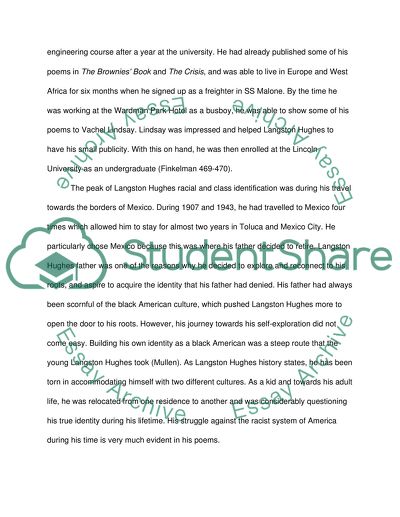Cite this document
(“Identity in the Works of Langston Hughes Research Paper”, n.d.)
Identity in the Works of Langston Hughes Research Paper. Retrieved from https://studentshare.org/literature/1462562-langston-hughes-poetry
Identity in the Works of Langston Hughes Research Paper. Retrieved from https://studentshare.org/literature/1462562-langston-hughes-poetry
(Identity in the Works of Langston Hughes Research Paper)
Identity in the Works of Langston Hughes Research Paper. https://studentshare.org/literature/1462562-langston-hughes-poetry.
Identity in the Works of Langston Hughes Research Paper. https://studentshare.org/literature/1462562-langston-hughes-poetry.
“Identity in the Works of Langston Hughes Research Paper”, n.d. https://studentshare.org/literature/1462562-langston-hughes-poetry.


